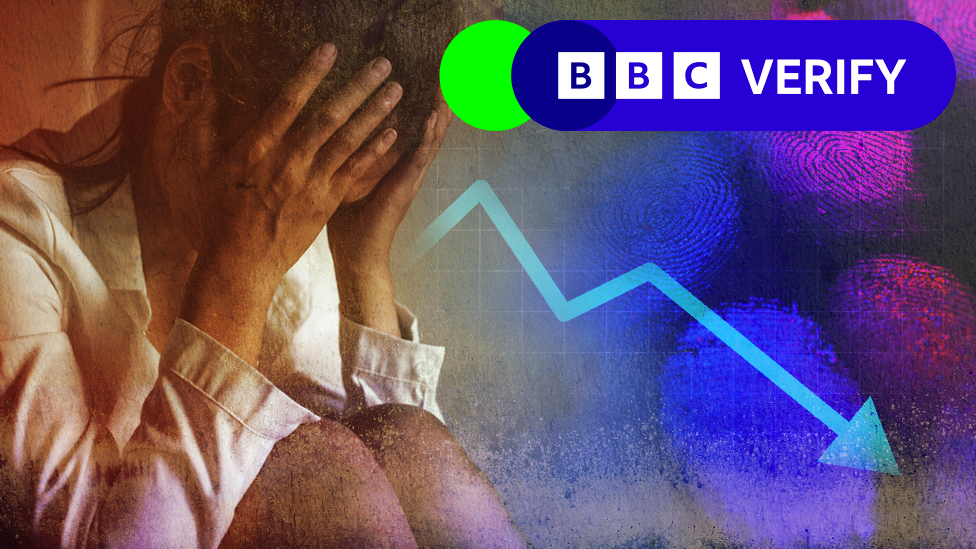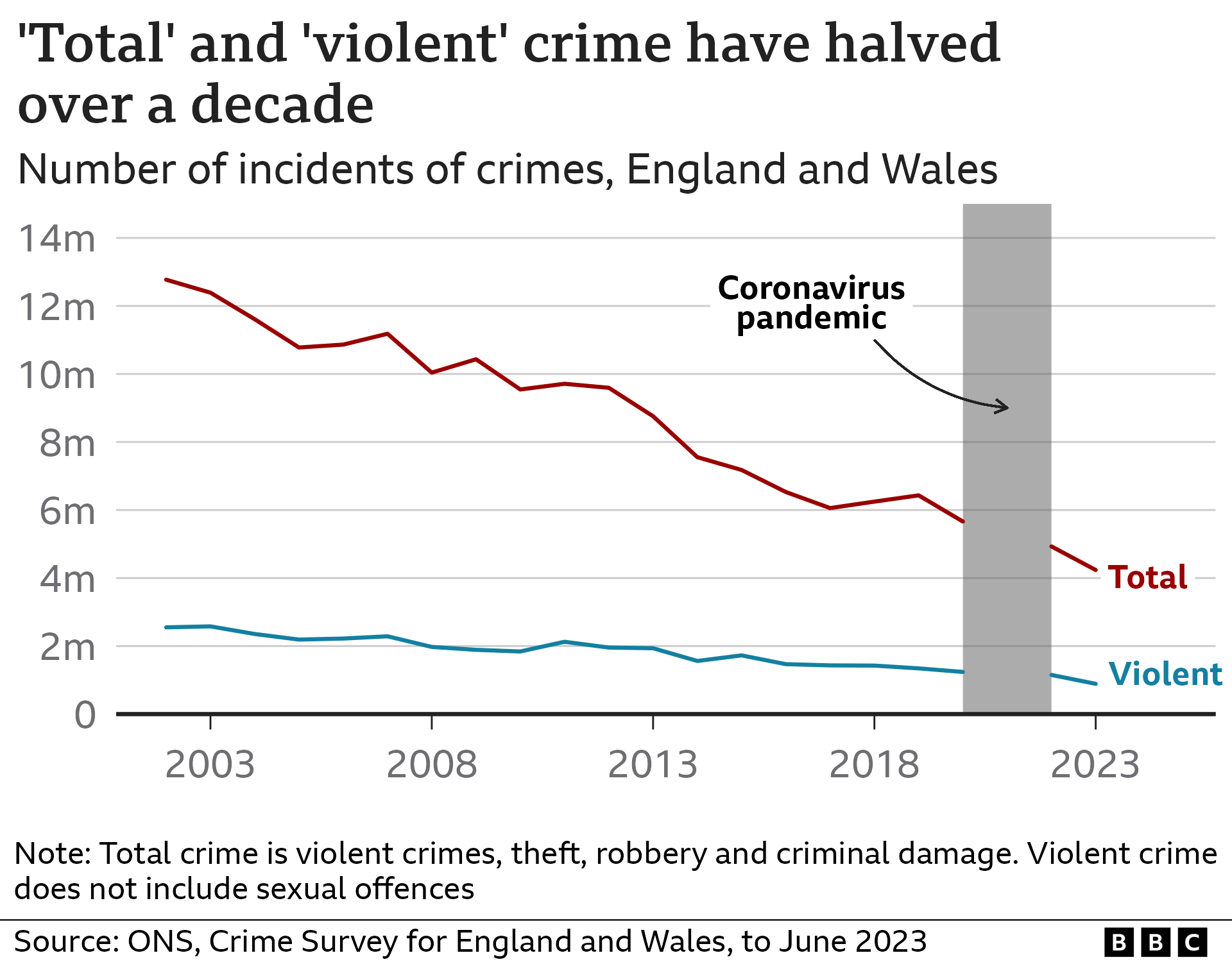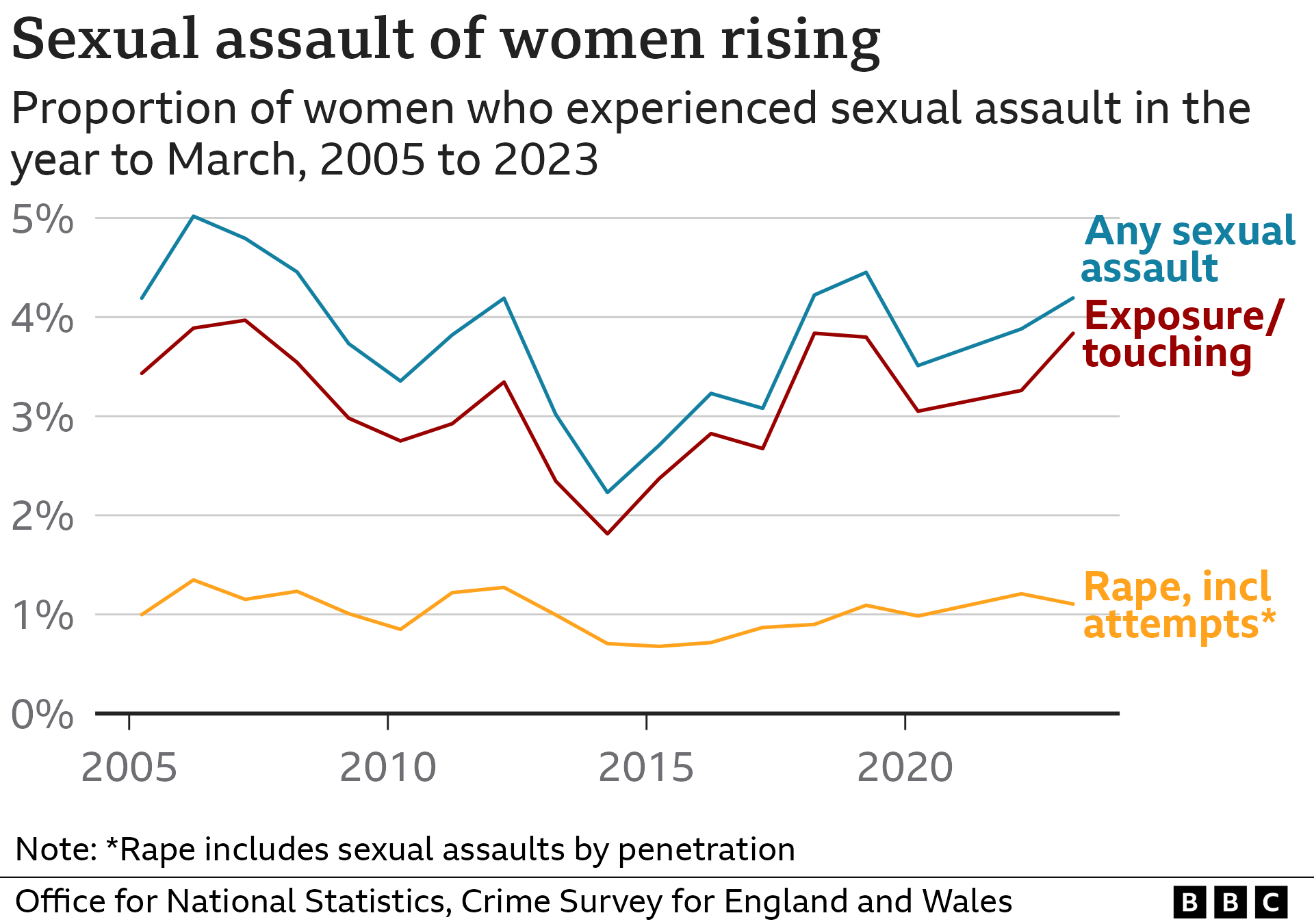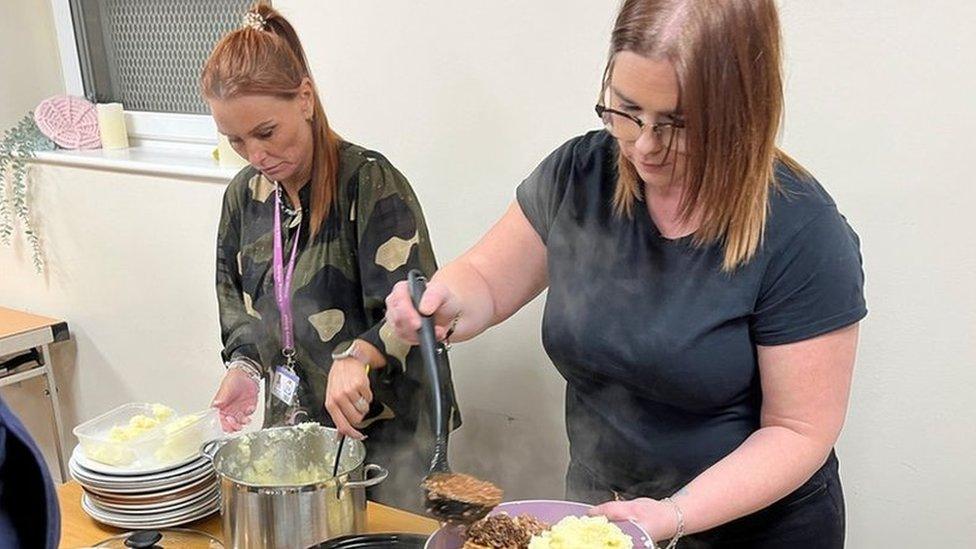Key crime stat excludes rape and other sexual offences
- Published

A key crime measure routinely quoted by ministers excludes many crimes that affect women more often than men, the BBC can reveal.
The headline figure from the Office for National Statistics (ONS) shows "total" crime has halved since 2010 - but excludes sexual assault, even rape.
The ONS says it is more challenging to collect accurate data on these kinds of crimes.
But critics say the omission hides the extent of violence against women.
Hard to measure
Not all incidents are reported to the police, so the ONS surveys 30,000 randomly selected people in England and Wales each year to work out how many crimes actually take place.
The results of the latest survey will be published on Thursday.
It says it has to treat some crimes differently.

The ONS's Helen Ross said: "In face-to-face interviews, victims - most commonly women - can be unwilling to respond if their abuser is in the room or if their family is unaware of previous abuse."
And it is hard to say what counts as a single crime of, say, stalking or harassment.
Because of these factors, separate analyses are published on sexual assault, external, domestic abuse, external, stalking, external and harassment, external.
However, these crimes, all of which happen more often to women than to men, are left out of the headline measure: the number of crimes that take place.
It only includes violent crimes, theft, robbery and criminal damage.
But this is the figure that has been used by Prime Minister Rishi Sunak, external and former Home Secretary Suella Braverman, external, as well as in Conservative Party posts on X, formerly Twitter.
Allow X content?
This article contains content provided by X. We ask for your permission before anything is loaded, as they may be using cookies and other technologies. You may want to read X’s cookie policy, external and privacy policy, external before accepting. To view this content choose ‘accept and continue’.
Violent crime statistics do not give a picture of trends in sexual assault because these crimes are classified as sexual offences and counted separately.
Scottish official statistics follow a similar approach for categorising crimes but often refer to their "violent crimes" as "non-sexual violent crimes".
The ONS has told the BBC it will add notes to charts in its reports on crime to highlight which offences are counted and which are left out.
Ms Ross also warned that any "broad assessments" on long-term crime trends based on a single metric "should be made with caution".
Sexual assaults are actually increasing, affecting just over 4% of women aged 16 to 59 in the year to March 2023, a figure that has nearly doubled since 2014.
The rise is mainly driven by an increase in unwanted sexual touching but rape, and attempted rape, are increasing too.

Stalking has also been on the rise since 2015, reported by just under 6% of women.
However, domestic abuse now affects 6.5% of women, as opposed to just over 11% in 2005.
Harriet Wistrich, of the Centre for Women's Justice, said relying on a definition of "crime" or "violence" that excludes what many women experience and worry about "gives a distorted picture of how much safer 'the general public' are".
"Women are 'the general public'. But their experience of violence is different from men's".
Labour's Dame Diana Johnson, who chairs the Home Affairs Select Committee, said not being clear whether data about falling crime includes or excludes "key forms of violence against women undermines efforts to combat it".
She added: "The government must make the scale of violence against women visible when they talk about crime in the UK."

The Home Office was asked about its use of the crime survey headline measure.
In response, it highlighted its plans to tackle domestic abuse and violence against women and girls, and efforts the government is making to speed cases through the courts.
Labour says it would get experts to agree on a single measure summarising violence against women and girls and then commit to halving those crimes.
Additional reporting by Megan Riddell, Sana Dionysiou and Rob England

- Published25 January 2024
